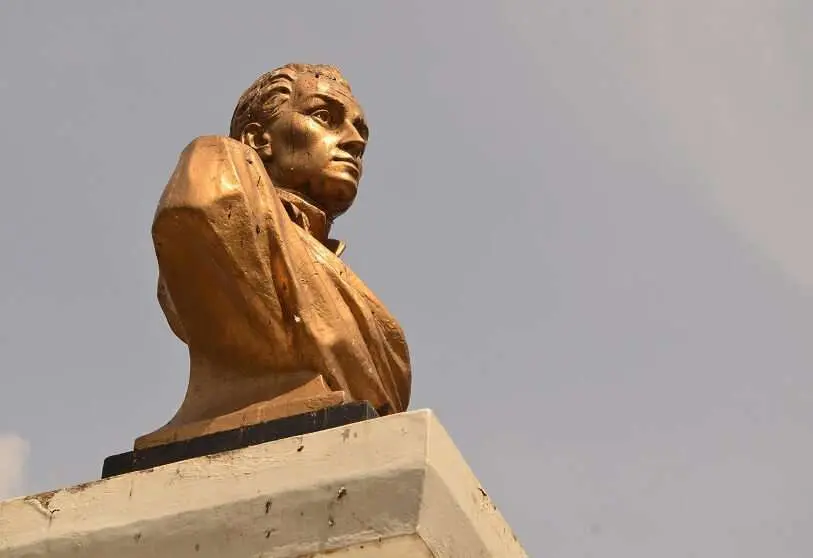Demystifying Bolívar and the manipulation of history

It is generally accepted that whoever controls the history of the past is guaranteed to be in power in the present and the immediate future. By virtue of this principle, it can be said that history has never been so manipulated in most parts of the world, especially by the great powers. Spain was, it ruled the destinies of the planet for almost three centuries, before losing its empire, an epic of which, like those who have gone through similar experiences, they never cease to lay claim to its most positive aspects and achievements, be they Egypt, Greece and Rome, or France, Holland and the United Kingdom as more recent experiences.
In the transmission of history to new generations, Spain has not only wished to justly claim an overwhelmingly positive balance for the peoples it discovered, conquered and administered, but has also wished to share a common legacy, in which the language, beliefs and behaviours, forged over those three centuries, were distinguished from other peoples or regions of the world.
Numerous documents, accounts and historical testimonies, if consulted with distance and without passion, help to establish the true contours of the characters who fixed their deeds in the minds of the people. Simón Bolívar, the military man who rebelled against Spain and led the independence processes of the current sovereign countries of Venezuela, Colombia, Ecuador, Panama, Peru and Bolivia, has been and is extolled and venerated by his countrymen, as well as by those of practically the whole of the Americas. But also by Spain and the Spaniards, who, through textbooks and the commemoration of important independence celebrations, presented him as a "liberator", that is, a tireless fighter for the liberation of the peoples. Especially during the dictatorships of Generals Primo de Rivera (1923-1929) and Franco (1939-1975), the greatest tributes and the greatest proliferation of statues and monuments in honour of Bolívar took place. Cities such as Madrid, Cadiz and Seville display in prominent places the effigy of the man who hastened Spain's decline.
It has now taken just one gesture by King Felipe VI - remaining seated at the passing of an alleged sword of Bolívar during the enthronement of Colombian President Gustavo Petro - for the monumental hagiographic legend of Bolívar to collapse. What were once clandestine documents, if not clandestine, then largely unknown to the general public, have now come to light, with a proliferation of quotations and a multiplication of the most obscure and sinister facts and sayings of the liberator.
The general public has discovered the greatest affront inflicted on Spain, the Decree of War to the Death, issued by Bolívar on 15 June 1813 in Trujillo (Venezuela), which condemned to death any Spaniard who did not join the rebellion against Spain. In other words, a traitor would put to arms those who remained faithful to their lineage, origin or oath.
Bolívar, a Creole from a wealthy and educated family and married in Madrid, who also enjoys recognition in France and many other countries, took up arms against Spain, taking advantage of the Napoleonic invasion. And, like the self-anointed emperor of the French, he showed the same degree of contempt and sadism towards prisoners of war, the former reducing Spain to ashes, the latter annihilating everything that smelled Spanish. Thus, he did not hesitate to behead all Spanish and Canary Islander prisoners - Bolívar himself writes this distinction in his own handwriting - and to initiate a veritable war of extermination, in which atrocities became commonplace, including stabbing to death "to save ammunition". Professor Daniel Emilio Rojas Castro points out in issue 35 of the Revista Colombiana de Estudios Militares y Estratégicos that "violence ceased to be one of the results of the revolutionary process to become one of the factors that shaped the entire political and military context of the confrontations between patriots (Bolivarian followers of the caudillo Bolívar) and monarchists (in favour of continuing under the protection of Spain)".
In the current anti-Bolivarian explosion in Spain, there are analysts and copyists who sum up Bolívar's life as "a bloodthirsty character, a bad military strategist, sadistic towards his enemies and a womaniser until the end of his life".
Both the emerging disrepute and the whitewashing of the former legend are the exaggerated extremes of a myth, which comes to be compared with the likes of Napoleon Bonaparte or George Washington. The only conclusion is that the course of present history has changed, so that it has become necessary to reconfigure the past. Indeed, the same is being done by Vladimir Putin and Xi Jinping in Russia and China, respectively.

